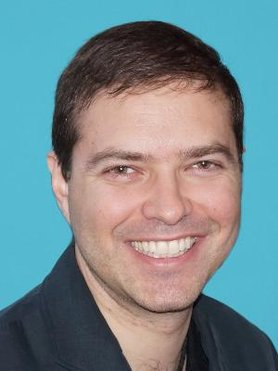

Dr. A.M. (Alejandro) Aragon
Dr. A.M. (Alejandro) Aragon
Contact
Profile
Research
Dr. Aragón's research focuses on creating advanced computational tools that enable the design of (meta)materials and structures in an automated, robust, and effective manner. In pursuit of that goal, he works at the boundary between engineering and computer science, creating cutting-edge finite element and optimization technology that is implemented in software of general applicability so that it can be applied to a large set of problems of societal and industrial relevance.
Dr. Aragón has worked on the design of novel materials and (origami) structures, the damage response of complex microstructures, the analysis and design of (meta)materials—and phononic crystals in particular. Dr. Aragón's latest research efforts revolve on the creation of new enriched finite element methods for decoupling the problem's discontinuities from the finite element mesh used for the analysis (for for analyzing material interfaces and cracks).
Interests- Development of novel numerical methods for solving partial differential equations in solid mechanics, including • linear/nonlinear elasticity • contact mechanics • damage and fracture mechanics • multiscale mechanics • immersed boundary (fictitious domain) problems • fluid-structure interaction • massively parallel scientific computing. Methods include advanced finite element methods (enriched finite element, virtual element, and spectral element methods) • single and multi-objective optimization • topology optimization • genetic algorithms • machine (deep) learning;
- Application of these methods to the computational analysis or design of novel (meta)materials and structures, including biomimetic materials • composites • elastic/acoustic metamaterials • origami.
Teaching
Dr. Aragón teaches Advanced Finite Element Methods (ME46050) in quarter 3, and Enriched Finite Element Methods (ME46050) in quarter 4. These courses not only contain theory on adavnced finite element formulations, but also benefit from the actual computer implementation to solve real engineering problems.
Personal site
-
You can find more information in Dr. Aragón's
personal page.
Biography
Alejandro obtained the degree of “Ingeniero Civil” from the Universidad Nacional de San Juan (Argentina) in 2001. He worked as a structural engineer for two years before he was awarded the prestigious Fulbright Scholarship to pursue graduate studies at the University of Illinois at Urbana-Champaign (UIUC). He received his MSc in 2006 and his PhD in 2010. His doctoral dissertation focused on the computational design of microvascular biomimetic materials. During the PhD program, he received the Mavis Memorial Scholarship Award in 2009 for academic excellence and research accomplishments. Dr. Aragón then held two postdoctorate appointments, where he conducted research on the computational modeling of heterogeneous materials (UIUC) and the development of computational tools for contact mechanics (EPFL, Switzerland). Since December of 2014, Dr. Aragón works in the Department of Precision and Microsystems Engineering at 3mE. He was awarded tenure in December in 2019, and became a co-director of of MACHINA (Machine Intelligence Advances for Materials) Lab.
Expertise
Publications
-
2024
A metamaterial-based interface for the structural resonance shielding of impact-driven offshore monopiles
Ana Carolina Azevedo Vasconcelos / Sabiju Valiya Valappil / Dingena Schott / Jovana Jovanova / Alejandro M. Aragón
-
2024
An interface-enriched generalized finite element method for the analysis and topology optimization of 2-D electromagnetic problems
Steven van Bergen / Richard A. Norte / Alejandro M. Aragón
-
2024
Multi-objective design of 3D phononic crystal waveguide by design space trimming
Sabiju Valiya Valappil / Johannes F.L. Goosen / Alejandro M. Aragón
-
2024
Strain engineering of nonlinear nanoresonators from hardening to softening
Zichao Li / Minxing Xu / Richard A. Norte / Alejandro M. Aragón / Peter G. Steeneken / Farbod Alijani
-
2023
A level set-based interface-enriched topology optimization for the design of phononic crystals with smooth boundaries
Sanne J. van den Boom / Reza Abedi / Fred van Keulen / Alejandro M. Aragón
-
Courses 2023
Courses 2022
Ancillary activities
-
2014-12-13 - 2024-12-13